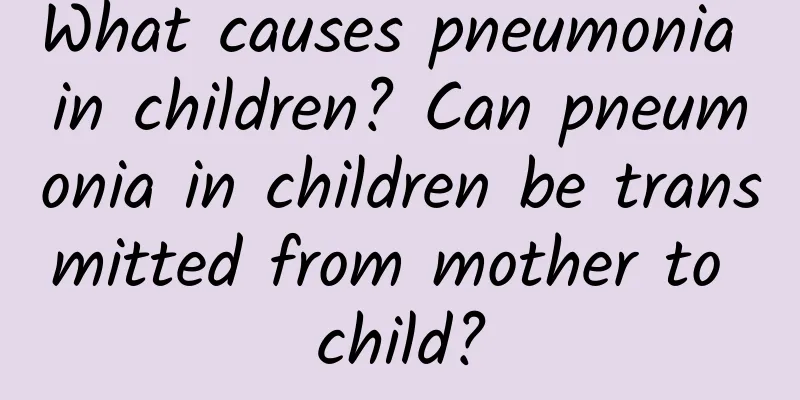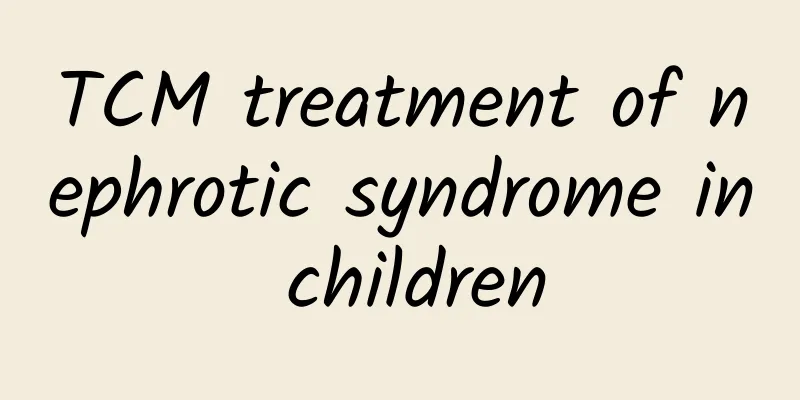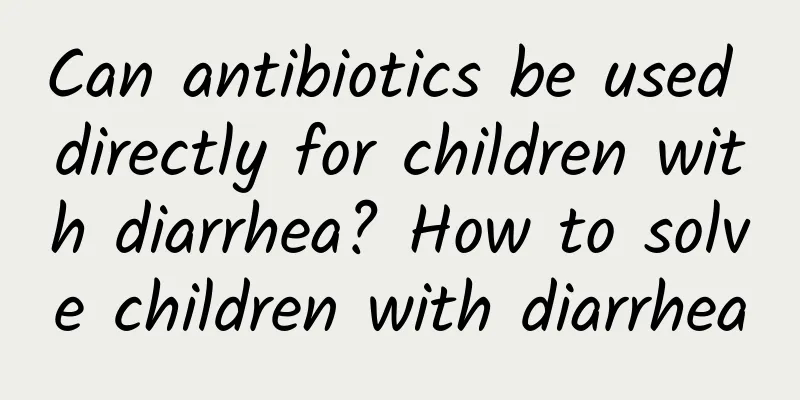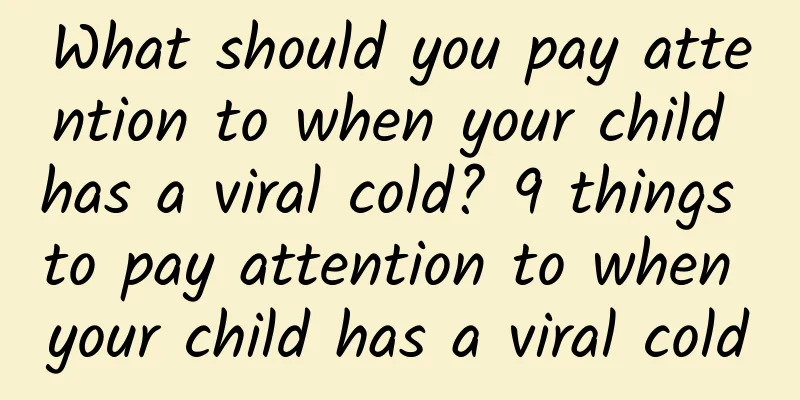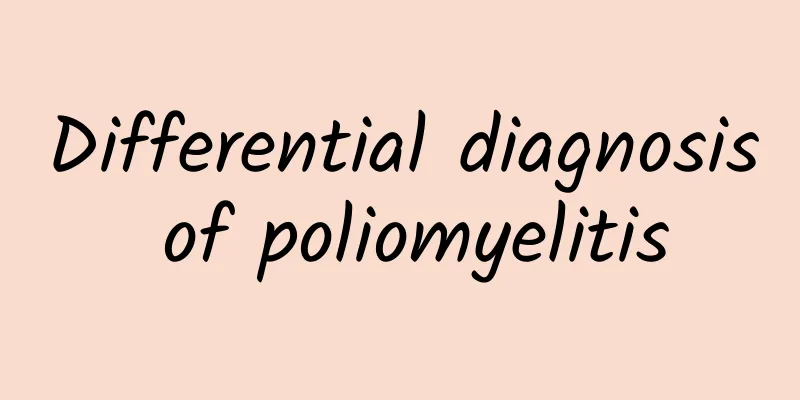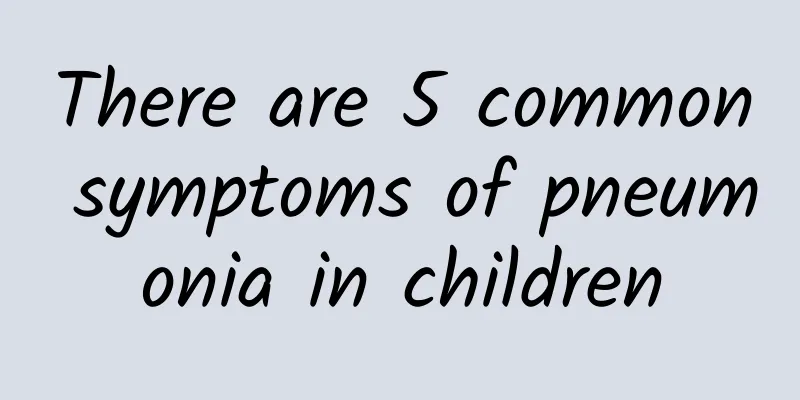What are the causes of diarrhea in children? What factors can cause diarrhea in infants and young children?
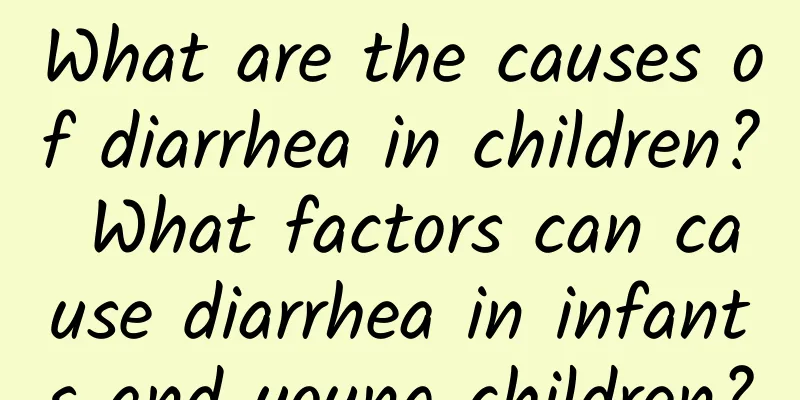
|
In summer, many children are prone to diarrhea. The high temperature in summer breeds many bacteria. The baby has poor resistance and weak stomach. Diarrhea needs to be treated in time. At ordinary times, we should also pay attention to preventing diarrhea. So what are the causes of diarrhea in children? What factors can cause diarrhea in infants and young children? The following is an introduction. 1. Causes of diarrhea in children 1. Bacterial infection Experts say that severe diarrhea (sometimes with vomiting), along with abdominal pain, bloody stools, and fever, is often caused by viruses or bacteria (E. coli, Salmonella, etc.). Some of these infections can heal on their own, but some can be very serious (such as the infection caused by E. coli contained in undercooked meat). If your baby has the above symptoms, you should take him to the doctor for examination and possibly a stool culture to see if it is caused by a bacterial infection. 2. Gastroenteritis Experts say that gastroenteritis (also called the stomach flu) is an inflammation of the stomach and intestines that can cause diarrhea in babies, children and adults. Gastroenteritis is very common and can be caused by many different viruses. The most common cause is rotavirus, which accounts for half of all hospitalizations for diarrhea in children, and is more common in the late fall and early winter. If your baby has diarrhea with stomach cramps, vomiting, and a low-grade fever, it is likely gastroenteritis. Be aware that your baby may lose a lot of fluids if he or she is not eating or drinking much. 3. Milk Allergy Experts point out that milk allergies are not uncommon and can cause diarrhea and sometimes vomiting. If your baby is allergic to milk, he may show symptoms within a few minutes to a few hours after drinking formula made from milk or eating dairy products (if he has already started eating solid foods). If you suspect your baby's diarrhea is related to milk, please consult a doctor for detailed information. 4. Food Factors Experts advise that drinking too much juice (especially juice containing sorbitol and high concentration of fructose) or too many sugary drinks may also make your baby's stomach uncomfortable and stools become loose. Give your baby less of these foods and it should get better in about a week. It is recommended not to give juice to babies under 6 months old, and after 6 months, the daily juice intake should not exceed about 113 to 170 ml. Improperly prepared formula milk may also cause diarrhea in babies, so when you prepare the formula, add water in proportion. 5. Antibiotics Experts say if your baby develops diarrhea during or after antibiotic treatment, it may be related to the medication. See if a different medication or treatment can be used. 6. Parasites Experts point out that parasitic infections can also cause diarrhea. For example, giardiasis (also called pear-shaped flagellation) is caused by a parasite that lives in the intestines and can only be seen under a microscope. Parasites are easily spread when living in groups and require special medications. Therefore, developing good hygiene habits, such as washing hands after changing diapers, is the best way to stop the spread of parasitic infections. 2. The harm of diarrhea in babies 1. Cause inflammation and swelling around the buttocks and anus. Diarrhea in babies can easily cause redness and swelling around the anus and the buttocks, which is the most common effect. Since diarrhea causes an increase in the number of bowel movements, it will naturally put a certain burden on the anus. Mothers should especially pay attention to whether the buttocks and the area around the anus are red and swollen after diarrhea. 2. It causes enteritis and makes diarrhea more serious. There are many reasons for baby diarrhea. If the diarrhea is severe, it is likely to cause enteritis. If the intestines are inflamed, the diarrhea will become more severe, and this cycle will have a more serious impact on the baby's body. 3. Cause dehydration or electrolyte imbalance in the baby. It is inevitable that diarrhea will cause dehydration. Baby diarrhea will also cause dehydration. If the dehydration is severe, it will also lead to electrolyte imbalance, which will cause gastrointestinal disorders. 4. Loss of appetite and weight loss Diarrhea in babies will also cause loss of appetite, which will naturally cause weight loss. If it is not controlled and treated in time, it will definitely have an impact on the baby's body. |
>>: 3-year-old child has diarrhea, fever, cough and runny nose
Recommend
How to prevent severe pseudohypertrophic malnutrition? What to do if you have pseudohypertrophic malnutrition?
The impact of severe pseudohypertrophic malnutrit...
Can acute laryngitis in children be cured?
Acute laryngitis in children is more common in wi...
Is winter a high-incidence period for childhood pneumonia? Four symptoms of childhood pneumonia
Winter is the peak season for pneumonia. The inci...
Is pneumonia in children contagious?
Whether pediatric pneumonia is contagious depends...
The effect of Hutong cold granules for children, 2 symptoms need to take Hutong cold granules for children
Xiaoer Hutong Cold Granules can relieve fever and...
How to treat patent ductus arteriosus
What methods are used to treat patent ductus arte...
Traditional Chinese Medicine for Treating Pneumonia in Children
Pediatric pneumonia is a respiratory disease that...
What to do if your child has a cough
Children's cough is a problem that many paren...
What are the drugs for treating seizures?
What are the drugs for treating convulsions? The ...
What to do if your six-month-old baby has a cough and runny nose? What to do if your six-month-old baby has a cough and runny nose?
If a six-month-old child has symptoms of coughing...
Dietary taboos for children with diarrhea syndrome
Children's diarrhea is mostly caused by the b...
Diagnosis of late-stage renal disease in children
There are many ways to diagnose the late stage of...
What causes acute laryngitis in children?
What causes acute laryngitis in children? Any dis...
Can children with pneumonia eat beans?
What should you eat when you have pneumonia? Pneu...
What is the folk remedy for mumps?
What should you do if you have mumps? How should ...
